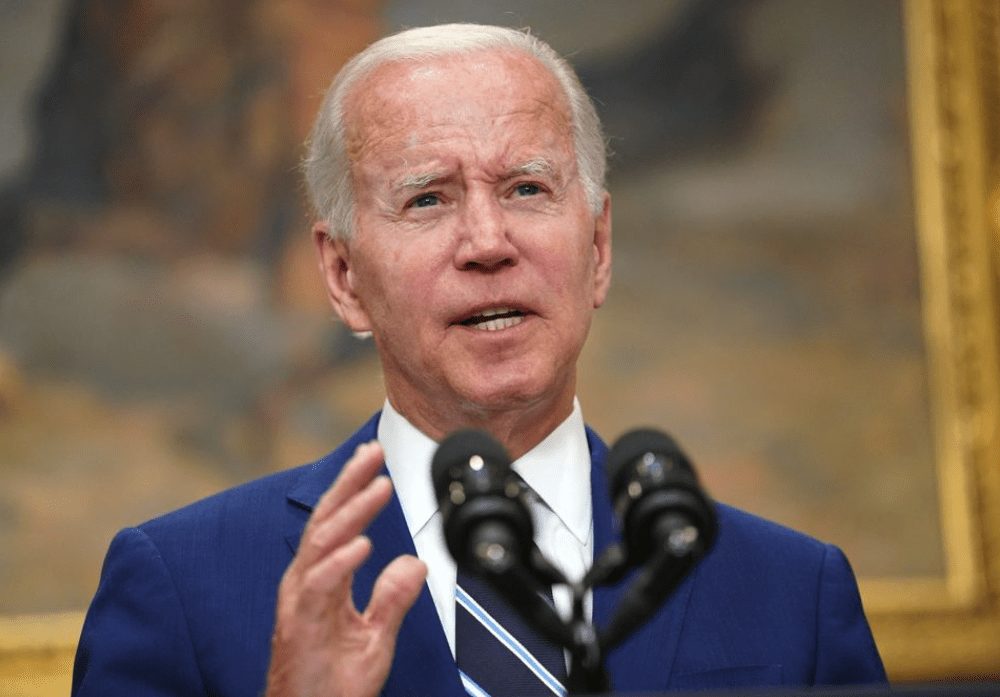The White House issued a news release Wednesday morning indicating that Presiden Biden intends to ask Congress and the individual states to take legislative action to provide Americans with some relief from high gasoline prices.
Earlier in the week, Biden told reporters that he was considering the idea of a “federal gas tax holiday.”
Biden also said that members of his administration would meet with oil company heads later this week, stating that he wants an explanation as to why they are not refining more oil.
He then clarified that he would not be attending the talks personally.
The president accused the oil companies of greed, suggesting they were making record profits and were more interested in their companies’ bottom lines than the needs of consumers.
First-quarter earnings reports indicate that U.S. oil refinery companies are making notable profits despite the higher cost of crude oil.
Shell reported that its net income rose to $7.3 billion from $5.8 billion during last year’s first quarter. Exxon reported $5.48 billion in profits during the first quarter, more than double the previous year. Chevron made $6.26 billion in profit, four times more than the first quarter of 2021.
Not everyone agrees with Biden’s assertion that corporate greed and price gouging are to blame for higher gas prices, however.
In an op-ed written for The Dallas Morning News last month, Sen. Ted Cruz said that President Biden himself was to blame for the increases.
“That is not an accident. It’s not an unintended side effect. Nor was it principally the result of the war in Ukraine.
“This was the result of the Green New Deal zealots in the Biden administration and their desire to put an end to oil and gas. Before Putin invaded Ukraine, gasoline prices had already risen 48% since Biden became president,” the op-ed read.
Cruz also mentioned Biden’s cancellation of the Keystone Pipeline deal as a contributing factor. He then claimed that the president’s other policies have been aimed at destroying the oil and natural gas industries.
Oil industry leaders say there are several factors at play that contribute to higher gas prices.
In an open letter from two oil industry trade organizations to President Biden, it was noted that 60% of the price of gasoline is the cost of crude oil.
The price of crude oil is at or near its all-time high due to supply-demand imbalance, logistics reshuffling as the world emerges from the pandemic and amid the ban on Russian products, and policy decisions made at the state and federal levels over many years by successive administrations, according to the letter.
The letter also stated that U.S. oil refineries are already operating at 94% capacity, and half of the refineries that are currently shut down are in the process of converting to renewable fuel production, an investment that cannot be easily or quickly undone.
“Today’s situation did not materialize overnight and will not be quickly solved,” the letter read.
In addition, the letter stated that Exxon had expanded production at its Beaumont, Texas refinery, and Valero had increased production at its Port Arthur facility for a combined total of 300,000 additional barrels per day.
The letter was signed by Chet Thompson, president and CEO of American Fuel and Petrochemical Manufacturers, and Mike Sommers, president and CEO of American Petroleum Institute.
The White House Fact Sheet released Wednesday says Biden will ask Congress to legislate a three-month federal gas tax holiday, ending September 30. The release also states that the president will call on local and state governments to enact legislation to further alleviate the issue, either in the form of gas tax holidays, consumer rebates, or relief programs.
The federal gas tax holiday may not have much support from Congress. Democratic House Speaker Nancy Pelosi and Senate Minority Leader Mitch McConnell have expressed skepticism about the idea in the past. Pelosi voiced concern that the oil companies could absorb the savings instead of passing it on to the consumer.
Critics say that the gas tax holiday will do nothing to fix the supply shock problem and will instead push demand in the wrong direction.
“I’m not a fan. You want people to drive less and use less gas. This works against that objective,” Mark Zandi, a chief economist at Moody’s Analytics, told CNN. “It’s not well-targeted.”
However, Treasury Secretary Janet Yellin stated in an interview on ABC’s “This Week” that the gas tax holiday was “an idea that’s certainly worth considering.”
The current federal gas tax is 18.4 cents per gallon for unleaded fuel. For diesel, that number increases to 24.4 cents. The 18.4 and 24.4 cent figures are based on legislation from 1993 and have remained constant over the past 29 years. They are not indexed to inflation.
A federal gas tax holiday would save the consumer $3.68 for every 20 gallons of unleaded gas.
The federal gas tax holiday would not directly affect gas taxes charged by individual states. However, state legislatures could make similar moves.
State taxes for unleaded range from Alaska’s lowest in the nation, 8 cents per gallon, to California’s highest, at 55.6 cents per gallon. California also charges additional taxes and levies on gas sold in the state. State gas taxes in Texas are seventh-lowest in the nation, at 20 cents per gallon.
According to AAA, the average price per gallon for unleaded across the country was $4.95 as of June 22. In the state of Texas, the average price was 33 cents lower, at $4.62 per gallon.
The national average price of unleaded gasoline has been trending downward since hitting an all-time high of $5.01 per gallon on Saturday, June 13 of this year.
Diesel is still significantly higher, with a national average of $5.81 per gallon as of June 22. The average price of diesel in Texas is $5.31 per gallon.






